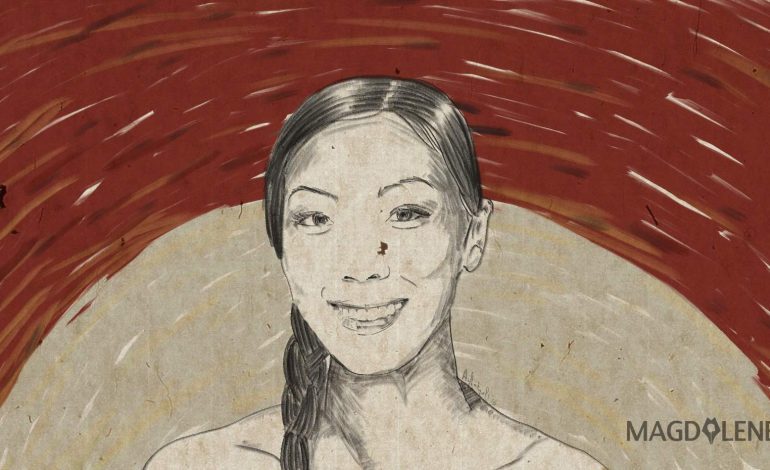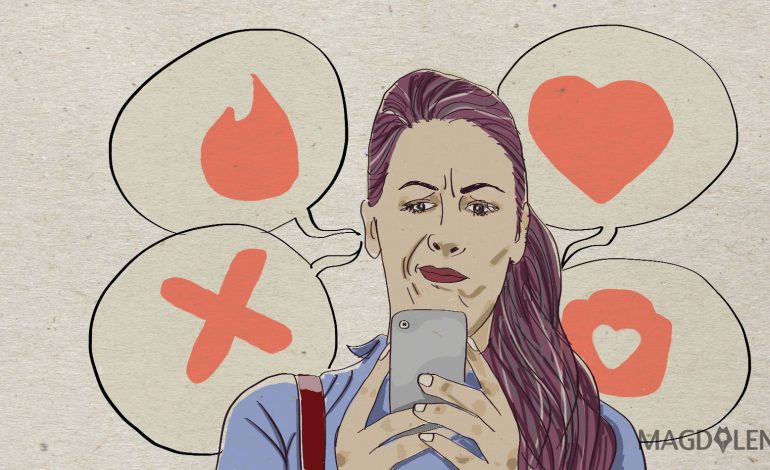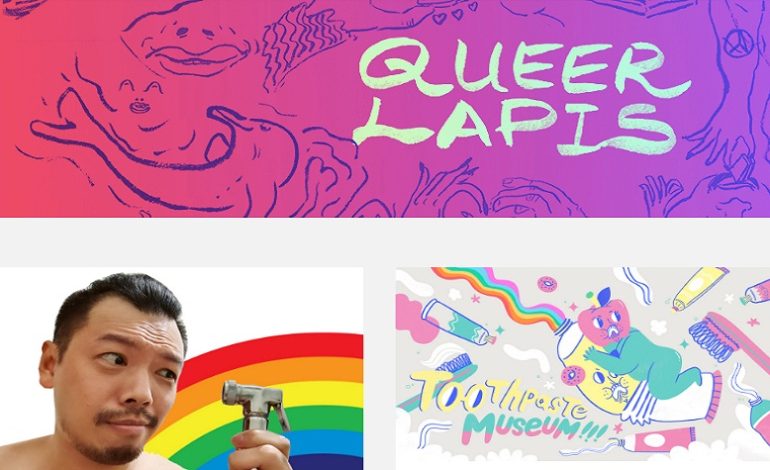I am Chinese Indonesian and I’m Leaving My Safe Bubble

We were sitting at the food court of a shopping mall located on the outskirts of Jakarta, when my friend made a remark about the mall’s visitors. She described the crowd as one that is “diverse” and a lot different than the crowd she was used to in the malls she frequented. It took me a moment to understand what she meant, as I was a regular at that place and had never really noticed anything odd. When it finally clicked, I realized she was alluding to a problem that seems to plague the Chinese Indonesian community.
First things first, I don’t speak for all Chinese Indonesian individuals out there. We obviously don’t all lead identical lives, but some similarities have led me to believe that perhaps many of my peers were brought up in the same way I was: in bubbles of safe havens where the fact that we are a minority in our country completely eluded our perception of reality.
I must have been in middle or high school, when I first discovered that Chinese Indonesians only make up less than 2 percent of Indonesia’s more than 200 million population, according to the country’s 2000 census. Over the years, I’ve come to learn that this number is possibly inaccurate because some people are reluctant to disclose their Chinese ethnicity due to past persecution against our community. But even then, 2, 5, or even 10 percent of the country’s population did not seem to reflect the world I lived in, where most people, if not everyone, looked like me.
As I got older, I began to notice that my community was underrepresented in many different segments of society. I wasn’t the most woke youth during my school years, but I don’t think it’s an exaggeration that I’m not able to recall officials, celebrities or any other public figure of Chinese descent from then, perhaps because there was little to none.
Somewhere along the way, it became obvious to me even as a child that Chinese Indonesians did not participate fully in society, but was very present when it comes to businesses. This shouldn’t come as a surprise if you know anything about Indonesian history. The late dictator Suharto barred ethnic Chinese from government or military posts during his rule, leaving them little choice but to develop their own businesses.
These things, to my recollection, weren’t formally taught in school. They weren’t even discussed all that much within my community, it’s just a given fact that we’ve come to accept, or at least the elders did.
I remember faintly, how, in 1998, at the height of the riots, members of our extended family stayed over in our house in BSD, Tangerang. I was only five then, and understood very little. I still recall how we put up a sign in Arabic on the driveway, trying to “disguise” our household to avoid being targeted, if it ever came to that. I didn’t comprehend what was happening, but I remember how fear plagued our house at the time. I can’t seem to remember if we discussed about it in a meaningful way afterwards. I don’t think we did.
Over the course of my youth, our existence as a minority was glossed over as a silent fact. We knew what we knew, but did it really impact our daily lives?
The answer is no, because for the most part, Chinese Indonesian community have become very adept in creating distinctly unique parcels within the larger Indonesian society, which eventually became our safe bubbles. I’ve not conducted any research, or anything. So here are some anecdotes.
The two schools I attended had predominantly Chinese Indonesian students. This shaped my view of the world in an extremely impactful way, for it wasn’t until after high school graduation that I realized how closeted I had been from the rest of my country. Isolated, even.
The neighborhoods we lived in? My family are not the most chatty or friendly people in the world, but I don’t think we’ve ever really had neighbors who didn’t look like us.
As a teenager, I was never allowed to take public transportation. My mother warned me that it was too dangerous, and besides we had other options. I came to believe this was the case, only to find out when I hopped on them as an adult that it wasn’t all that bad. I suppose things may have improved over the years, and my mother had once been right, but it’s still doesn’t negate the fact that I grew up in not only an environment in which we are barred from participating in society, but also one in which we stop ourselves from even trying to climb over the walls.
Remember my friend from the beginning of this story? When she noticed the diversity of the place we visited that day, she realized how she was, in fact, a minority in this country. That might be the easiest illustration of all, the fact that there are malls in Jakarta where Chinese Indonesians make up most of the visitors. It becomes easy, then, to forget that we only make up a tiny portion of the population, that we are still considered second-class citizens, that our ethnicity and, to a large extent, our religion, still limits us from becoming full members of the Indonesian society.
And so many of us have grown comfortable in these safe spaces, that perhaps a handful of us are more reluctant than ever to step out. Things don’t look promising outside the bubbles, anyway. Not after what happened to the former Jakarta governor, or other things that ensued – which didn’t necessarily target our community, but still infringed on the rights of marginalized community, a category in which we belong.
But as with any other community out there, we are not free from our own troubles. When you look too much inward, not only can you forget about the world outside, you’re also doomed to repeat history. There’s so much to patch within this community, and I don’t think we’re doing ourselves any good by essentially isolating ourselves from the world. That is changing, of course. Though slowly.
Stepping out wasn’t even the difficult part. The most challenging part comes next, as you try to catch up on all the things you have missed out on – the things that seemed now so obvious but hadn’t been to you – and then continue living within the same society with these new perspectives whilst also trying to evoke change. All the while, people continued on living exactly the same as they had before.
It’s all quite terrifying. The experience, one way or the other, put a spotlight on the fact that I’m a triple minority, a woman, a Buddhist and an ethnic Chinese. People don’t always see you for who you really are. Most of the time, they see you for all their preconceived notions of who you are supposed to be, according to the standards society has placed before most, if any, of us even had a say.
When I try to talk about the dynamics of the ethnic Chinese community in Indonesia, I stumble upon similar questions time and time again. Has it always been this way? This bad?
Everywhere we go, there’s an increased perception that the world we live in has turned upside down and that chaos is all over the place. Whether or not that is representative of what’s actually happened on the ground… well, that’s a debate for another time. But I’d like to look at it in a more practical manner: social media has changed the way we receive and share information, and if that exposes more of the world, then so be it. The question is: what are we going to do about what we now know to be true?
The ever-idealist me believes that we can’t afford to stay silent, revert to the status quo, or retreat to our safe spaces. It’s neither practical nor sustainable. Everyone can be part of the solution, but it’s also about making the effort to learn and to participate. This is all very different than what I was used to, how I was taught by my community.
One of the most difficult parts for me so far had been trying to have this conversation with the generation before me, including my own mother. Life is already complicated, why add to it, they’d say.
For most of my life, I learned to be quiet. I learned to stay on my lane, and to not step out of line – both literally and figuratively. I have found that those mechanisms, intended for modern-day survival, limited me from who I could become, from having more friends of different backgrounds, from being part of a bigger, brighter community.
Well, no more.
We’ve all heard different messages of and for diversity over and over again, haven’t we? Even more so these days. I want to live where diversity isn’t merely a motto, or a fact represented by numbers, but a way of life. It may sound too idealistic, but our ideals should at least take us somewhere.
Sheany is a Jakarta-based news reporter who uses her free time to learn about social justice issues, play with her four dogs and capture ephemeral wonders on her camera. On Twitter, she is @sheayas.






















